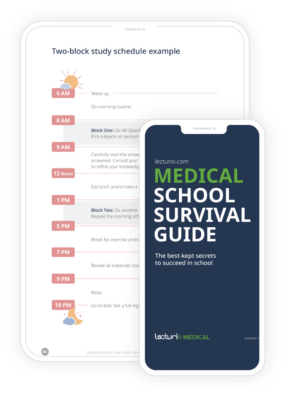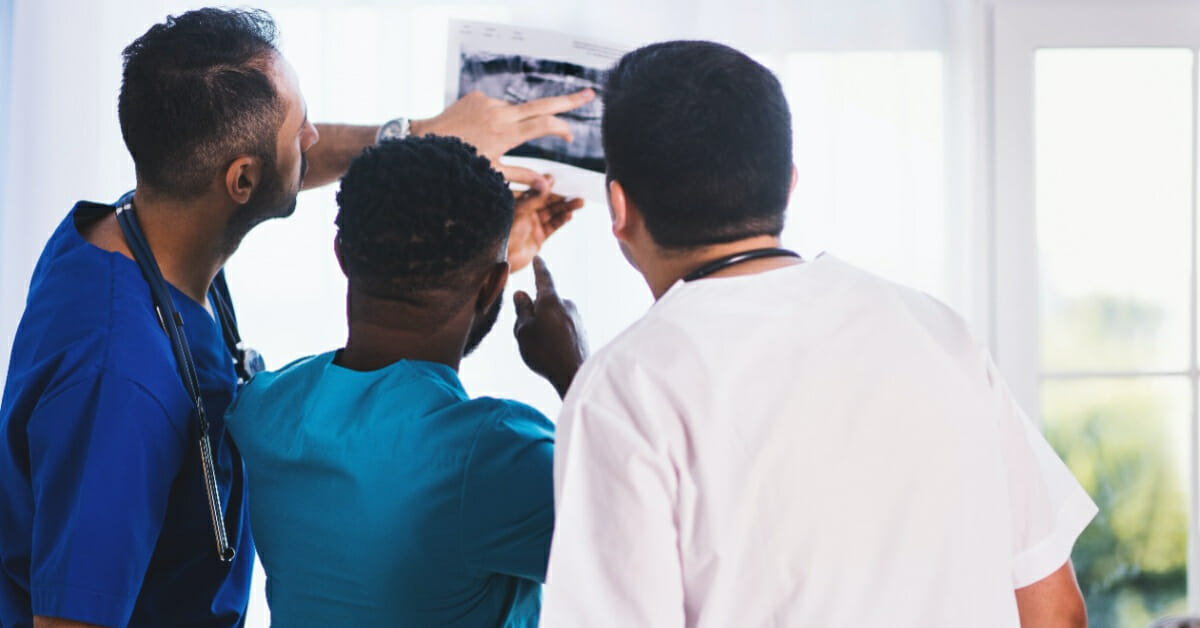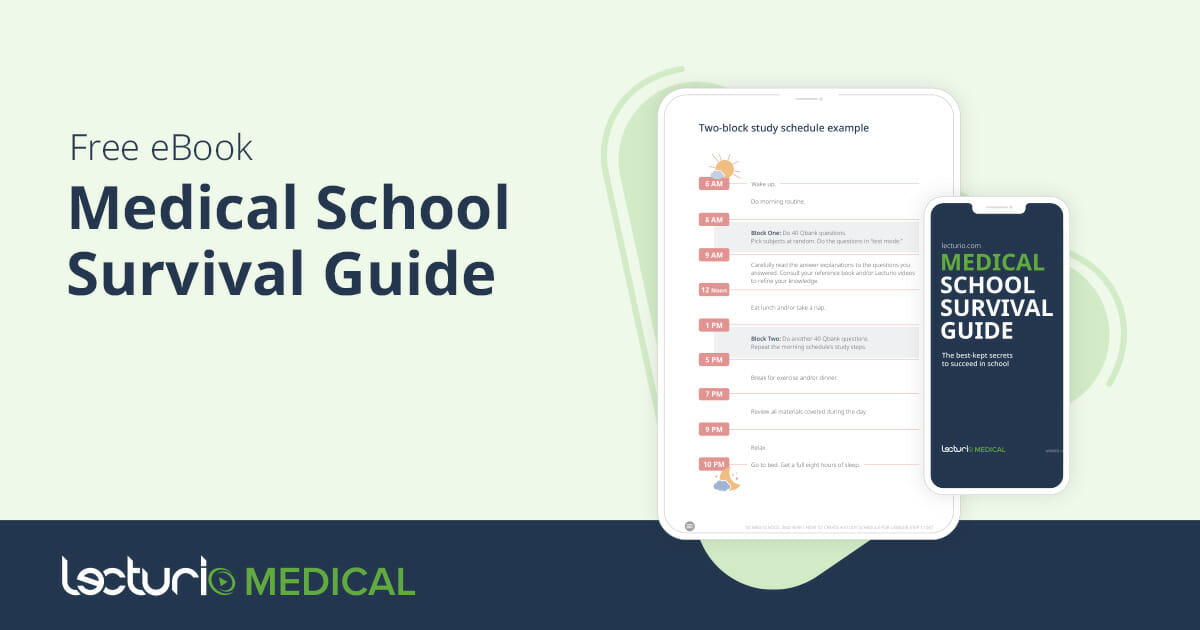I sat up the night before my first day of clerkships, nervous about what the next day might hold. What I experienced as a clerkship student in my first few days, however, was much different — a more collaborative and open environment than I had been led to believe, with an emphasis on uncovering areas of weakness and using them as opportunities to learn. I recall being pleasantly surprised at how different my learning environment was compared with accounts I had heard. It got me thinking — where did the legend of “pimping” come from in the first place?
What Is “Pimping” in Medicine?
“Pimping” in medicine is a term that describes the process of questioning students during clinical clerkships to either expose gaps in knowledge or to teach about an important aspect of the facts of a medical case.
The practice is loosely based on the Socratic method, in which questions are asked sequentially until the student no longer knows the answer. In its most classic form, pimping starts with the most junior member of the team (usually the medical student), proceeding to the next highest member when the more junior member is no longer able to answer the line of questioning. The practice typically culminates in a brief explanation by the attending physician leading the team about a salient clinical point or case feature they intend to highlight from the line of questioning.
Is Pimping Still Used in Medical Education Today?
Pimping originated in an age when the attending physician was considered to be the definitive authority on medical knowledge. As such, physicians-in-training were expected to absorb that knowledge and pass it on.
By and large, pimping was the way this was accomplished and reinforced in a highly hierarchical educational structure. Although the use of pimping in medical education is certainly longstanding, most modern medical educators realize that pimping is probably not the most effective mode of teaching for every student or every scenario. While you certainly will encounter some degree of Socratic questioning as a ward student, it’s no longer the only means of instruction.
Pimping Questions
In some disciplines, such as surgery, common pimping questions might relate to critical structures on display during a case. Pimping questions in medical specialties can be quite varied, depending on the disease in question and owing to the multiple medical issues inpatients (where most pimping takes place) have.
Perhaps unfairly and somewhat famously, pimping questions can also be arcane, focusing on medical history (Who performed the first heart transplant?), trivia (Do you know why gin and tonic was such a popular drink in the antebellum American South?), pseudonyms (What is the name of the condition that occurs, resulting in fever and chills, when you treat a syphilis patient with penicillin?), or medical aphorisms or sayings (“Never let the sun set on a pleural effusion”).
Tips for Dealing With “Pimping”
1. Try not to take “pimping” personally
Most of the time, getting the answer right is not a competition, but a way for professors to probe your knowledge base and attitude toward not knowing something.
In the best cases, pimping is designed to help find the limits of your knowledge and uncover gaps in knowledge and opportunities for improvement. At its worst, though, pimping can reinforce a rigid hierarchy, stifle student curiosity, and lead to a toxic learning environment.
Studying medicine has never been easier.
Set yourself up for success with Lecturio.
2. Prepare in advance for likely questions
Sometimes, pimping questions seem to come out of nowhere. But most of the time, you can get a sense of where a line of questioning is headed. If you know you’re going to be scrubbed in for a gallbladder procedure, you should expect to be asked about Calot’s triangle. If you’re presenting a heart failure patient on rounds, you should expect to be asked about the medications that provide a mortality benefit in that disease.
In preparing for these more “obvious” questions, asking the advice of residents or more senior students can be invaluable to your success and preparation.
3. Realize that it’s ok “not to know”
No matter how you feel about pimping, you should know that it’s always OK not to know the right answer — as long as you’re willing to learn! A classic, if clichéd, response to a question you don’t know the answer to is “I don’t know, but I’ll look it up” — even better if you pair your knowledge gap with a presentation or relevant journal article at the opportune time. Most professors and senior residents care more about the fact that you’re making an effort to learn than whether you have the right answer. After all, if you knew the answer already, you wouldn’t need to be in med school in the first place!
4. Read, read, and read some more
When a question comes up that you don’t know the answer to, make a point to read more about the answer later that day. Reading about the disease conditions of your patients is the single most effective way to commit what you’re learning on the wards to memory. Students often get end-of-rotation feedback to read more, and the easiest way to accomplish this goal is to become curious about your patients and their conditions. Whether it’s a chapter of a textbook or a few simple bullet points from a point-of-care app or website, the more you read, the better prepared you’ll be for pimping questions. This simple habit will often spark more questions in your mind, which leads to the last tip…
5. Don’t hesitate to ask questions of your own
If you’re engaged in the questioning process and reading up on your own patients, you’re sure to come up with a few questions of your own about what you’ve found. When pimping is done for the purpose of teaching the whole team, allowing the whole team to ask questions is a natural next step in the process. From attendings to medical students, the entire team can serve to learn from a well-placed question.
Feel free to ask away — most senior residents and attending physicians are eager to teach and learn from you!
In Conclusion…
The practice of pimping is a part of medicine’s history, for better or worse. While you might not encounter any of the exact pimping questions above, you should try your best to be prepared for a ward rotation by reading up on your patients and filling in any gaps in your knowledge that questioning reveals. Hopefully, your teachers will grant you the same experience I was lucky enough to have during my medical training. Who knows? Maybe the sample pimping questions above — all real questions I was asked at some point along the way — will impress one of your attending physicians during your training!






